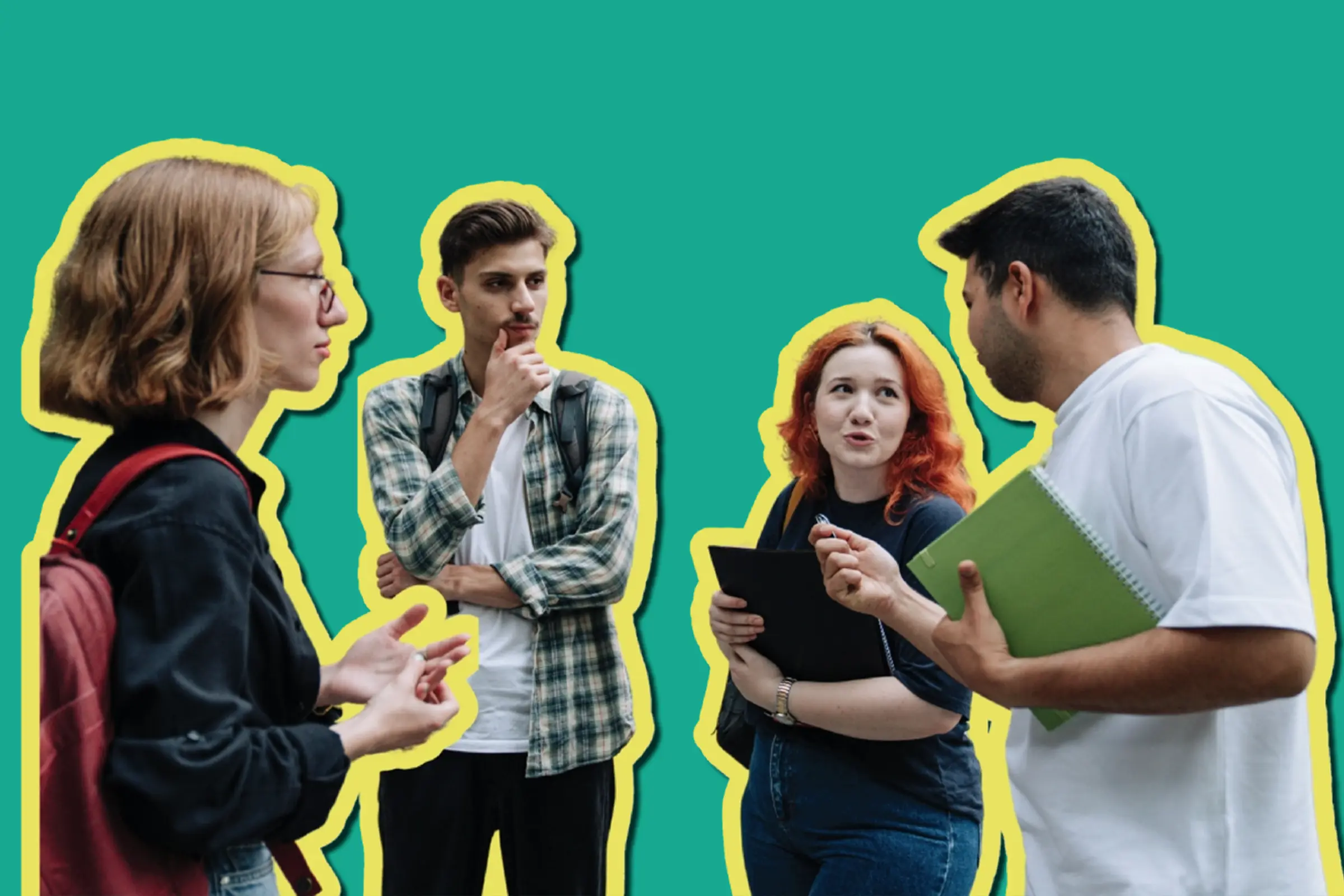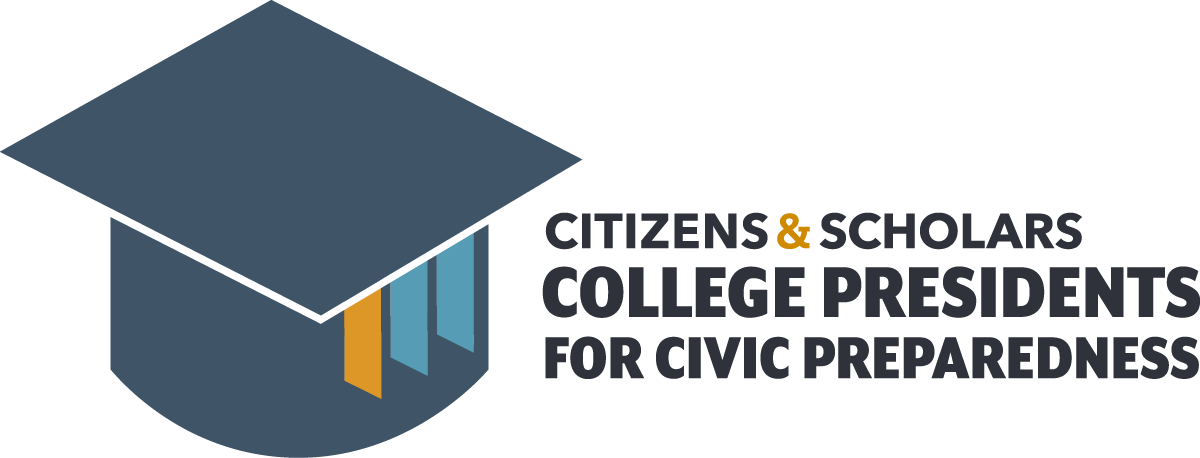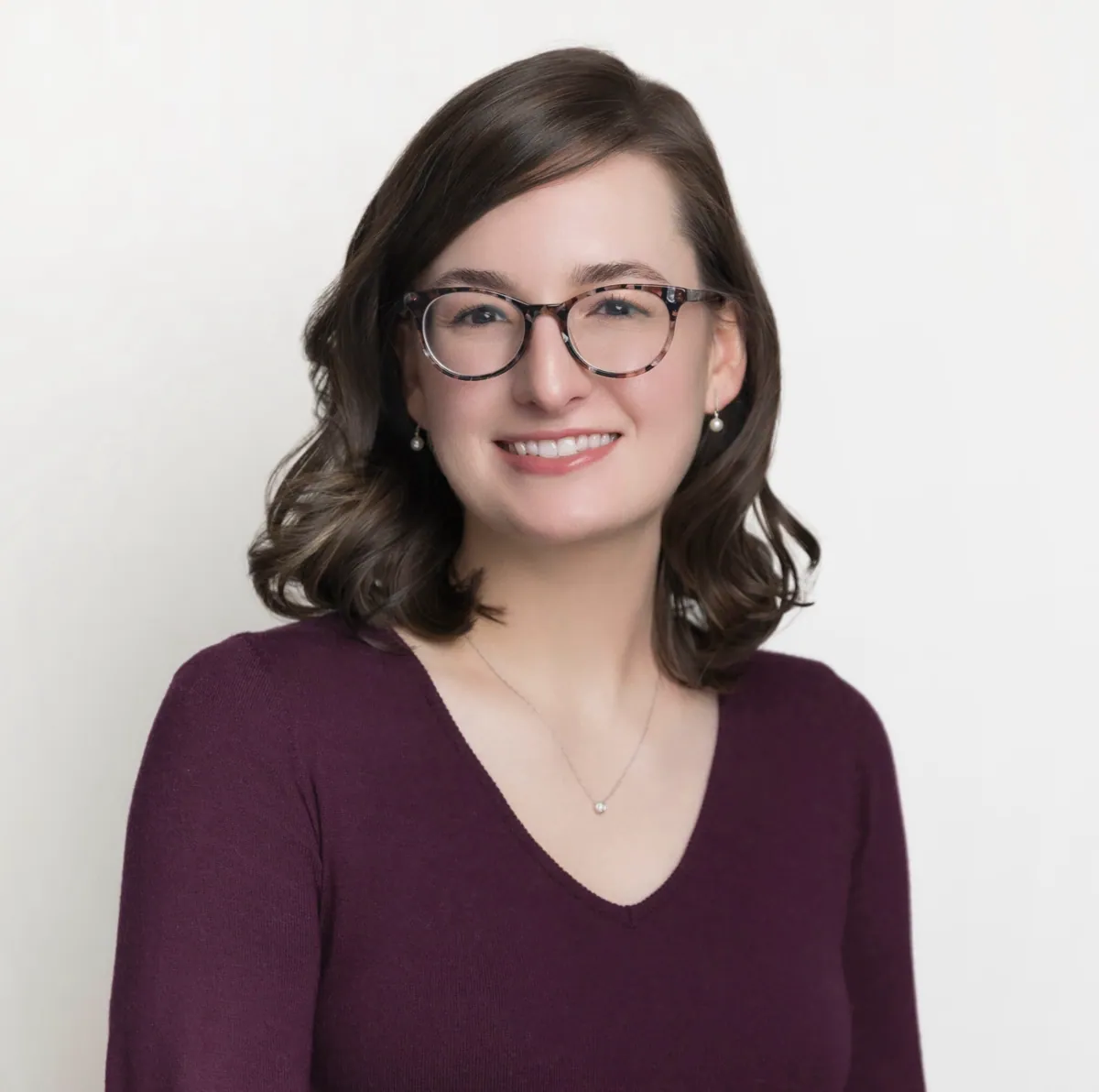College Presidents for Civic Preparedness Spotlight

In August 2023, the Institute for Citizens & Scholars launched College Presidents for Civic Preparedness, bringing together college presidents who are committed to ensuring today’s young people are well-informed, productively engaged, and committed citizens. Since then, higher education has been grappling with escalating challenges, including free expression, academic censorship, and political polarization. Tensions on campuses have been further inflamed by the Israel-Hamas War. There is a critical need for fostering deliberative dialogue and embracing a diversity of voices at this moment.
College Presidents for Civic Preparedness is making meaningful progress on this front. From facilitating guest lectures featuring different ideological perspectives to introducing faculty training on civil discourse and creating student programming around civic skills, participating institutions are recentering their commitment to developing thoughtful, effective citizens. Above all, they’re working to uphold higher education as a public good that sustains a democratic society.
Claremont McKenna College – Marian Miner Cook Athenaeum
Part of Claremont McKenna College’s campus-wide Open Academy initiative, the Marian Miner Cook Athenaeum (the Ath) is a signature program that brings scholars, public figures, thought leaders, artists, and innovators across a spectrum of insights and expertise to build relationships and exchange ideas with the CMC community. The Ath is celebrating its 40th anniversary this year and announced its 2023-24 speakers programming in September.
“I want to do everything I can to support the Ath in its crucial mission of promoting constructive dialogue and intellectual curiosity. Many institutions of higher education purport to challenge their students to think critically and engage with ideas on the cutting edge, but the Ath is one place where this is done in practice.”
Adrian Flynn, Claremont McKenna College Student & Woolley Athenaeum Fellow
Cornell University – Freedom of Expression Theme Year
Cornell has made free expression a guiding principle of the 2023-2024 school year. Here are just a few of the discipline-spanning events that are helping to foster and protect free expression on its campus:
- The inaugural Milstein Symposium, the first in a series throughout the university-wide freedom of expression theme year, featured Professor Jameel Jaffer, Columbia University, and
- Professor Eugene Volokh, University of California at Los Angeles, who engaged in a conversation moderated by Cornell Dean of Faculty Eve De Rosa to explore the scope and boundaries of freedom of expression through a First Amendment lens.
- The Cornell Brooks School of Public Policy in partnership with Opera Ithaca presented “Scalia/Ginsburg” in September, a one-act operatic comedy about the unlikely friendship between U.S. Supreme Court Justices Ruth Bader Ginsburg ’54 and Antonin Scalia.
- NPR’s David Folkenflik, the 2023 Zubrow Distinguished Visiting Journalist in the College of Arts & Sciences, hosted a discussion with leading journalists on the role of the press in a democratic society.
- The exhibit “Fashioning the Bounds of Free Speech” features works from the Cornell Fashion + Textile Collection and the Herbert F. Johnson Museum of Art’s permanent collection on view in Cornell’s Human Ecology Building. The installation explores fashion and art as forms of symbolic speech and expressive conduct that shape the limits and possibilities of freedom of expression in the U.S.
Dartmouth – Dialogue Project
Dartmouth’s new president, Sian Leah Beilock, named free speech as a key focus area for her tenure during her inauguration address. As part of several initiatives on campus, the college will introduce a program known as the Dartmouth Dialogue Project to develop students’ skills in “open, honest, and respectful communication both in and out of the classroom.”
The Dartmouth Dialogue Project will offer a cohesive suite of curricular and co-curricular offerings that provide students, faculty, and staff with intentional training in the development of essential collaborative dialogue skills, including active listening, self-awareness, managing emotions, recognizing mis- and disinformation, and constructing a respectful well-reasoned argument.
Denison University – Freshmen Orientation Debates
Denison University students participated in a live debate during freshmen orientation this fall to practice dialogue across difference. Students in the crowd were invited to stand and share their arguments about the ethics of ChatGPT with a facilitator; according to the rules, developed and promoted by Braver Angels, a nonprofit focused on political depolarization, they could not directly address one another but had to respond strictly to the ideas presented.
The debate appeared to have a meaningful impact on Denison’s students; in a survey sent to participants afterward, 80 percent of respondents said the exercise “caused them to re-evaluate their position [on free speech] even if they did not change their mind.” Even more said that the debate gave them a better understanding of other people’s viewpoints.
DePauw University – Restoring Free Inquiry and Civility in Higher Education Webinar
American Enterprise Institute’s Frederick M. Hess will lead a discussion on December 8, 2023 with Rajiv Vinnakota, President of the Institute for Citizens & Scholars, DePauw University President Lori S. White, and James Madison University President Jonathan Alger as they discuss what university leaders can do to restore a healthy culture on campus.
Duke University – Summer Faculty Seminars
John Rose, director of Duke’s Civil Discourse Project, and his colleagues held an annual seminar, “Teaching Civil Discourse in the Classroom” from August 15-16. This summer, Duke University also hosted the Institute for Citizens & Scholars’ Faculty Development Institute on Dialogue Across Difference – another major project of College Presidents for Civic Preparedness. Both events provided training and resources to help faculty and administrators across the United States learn how to better guide classroom discussions focused on hot-button issues.
Through speeches and table discussions, the goals of the Faculty Development Institute convening included:
- Increasing faculty members’ capacity, commitment, and comfort level to develop and teach courses that prepare students to engage in dialogue across difference.
- Increasing faculty members’ capacity, commitment, and comfort level to engage across lines of political difference in a meeting, classroom and community–irrespective of their discipline or areas of scholarship.
- Strengthening teaching in civic preparedness, free expression, and intellectual dissent in the classroom by incorporating methods into an existing course or developing a new one.
- Expanding and establishing a network of faculty committed to this area of teaching.
“Nobody gets a Ph.D. in civil discourse, so many lack confidence in this area. [Faculty] feel like something needs to be done and sense many students want a different classroom environment, but, as teachers, they don’t know how to do it.”
John Rose, Associate Director of the Civil Discourse Project at The Kenan Institute for Ethics at Duke University
Georgetown University – Free Speech Project
Free Speech Project, a student-staff initiative at Georgetown University, serves as an independent, nonpartisan initiative working to assess the condition of Free Speech in the United States today—in education, civil society, and government. The project is doing important work to examine Free Speech on a national scale, documenting incidents in which First Amendment values have been challenged or compromised and holding public forums with expert opinion and analysis.
In partnership with the Future of Humanities Project, the Free Speech Project has held an event series called “Free Speech at the Crossroads: International Dialogues”. This Fall, they hosted public discussions on media freedom in Europe, America’s position as a global power, and the War in Ukraine.
James Madison University – New & Transfer Student Orientation: Freedom of Expression and Speech
As an institution named after the father of the constitution, James Madison University requires new students to attend and engage in “Freedom of Expression & Speech”, a one-hour program designed for incoming James Madison University students to explore and celebrate the concept of free speech, its importance, and the opportunities it presents in academic settings. This interactive and engaging session fosters a deeper understanding of the principles of free speech and expression, encourages open dialogue, and creates a brave space for diverse opinions to flourish.
Rollins College – Common Read Theme & Free Speech Art Exhibit
In tandem with the 2023-2024 Rollins College Common Read theme, Political Polarization, the Rollins Museum of Art is hosting an exhibition, “The Voice of the People: Freedom of Speech” from September 9, 2023-January 7, 2024. The collection examines how freedom of speech shapes democracy and civic engagement. It features a selection of works from the museum that centers freedom of speech as a pillar of productive political conversations by exploring multiple artistic perspectives, approaches, and media.
Rutgers University – President Holloway’s Byrne Seminar
President Jonathan Holloway taught a Byrne Seminar this fall for first-year students titled “Citizenship, Institutions, and the Public.” The course examines the state of our nation and what it means to be a good citizen through a series of conversations with corporate, political, nonprofit, media, labor, and faith leaders. Raj Vinnakota was Dr. Holloway’s first guest. Their conversation ranged from the importance of civic preparedness to higher education’s role as a public good. Subsequent speakers included foreign policy veteran Richard Haas, Baptist minister DeForest B. Soaries, Jr., corporate executive Edith Cooper, FOX News correspondent Mike Emanuel, and former Secretary of State Condoleezza Rice.
University of Pittsburgh – Year of Discourse and Dialogue
The University of Pittsburgh has named the 2023-2024 academic year the Year of Discourse and Dialogue. It is currently reviewing proposals for programming that will take place in the spring semester. Hear from Vice Provost Kenyon Bonner and Dean Carissa Slotterback on preserving free speech and the core tenets of the theme year here.
Pitt’s Institute of Politics has hosted several recent events examining civic and social engagement and governing during challenging times as part of their Preserving Democracy guest lecture series. This fall, topics have included “Political Violence and Polarization” and “The Critical Role of the Media.”
Wellesley College – Civic Action Lab
Wellesley’s Civic Action Lab, launched this August, is a three-day immersive retreat for sophomore students emphasizing constructive dialogue, civic engagement, and learning and leading across differences. Students learned to navigate through a constructive dialogue groundwork to ensure foundational knowledge and shared language.
The inaugural group of 30 students engaged in activities such as a mock Senate debate at the Edward M. Kennedy Institute, where they practiced empathy and understanding taking on the roles of politicians representing a range of viewpoints. They also traveled to Thompson Island to build trust and a sense of belonging, spent time at the Cambridge Innovation Center with civic accelerators, explored the complex issue of global food insecurity through an Oxfam hunger banquet, and talked with faculty members across departments over dinner. The program aspires to be inclusive of all sophomores in the future.

